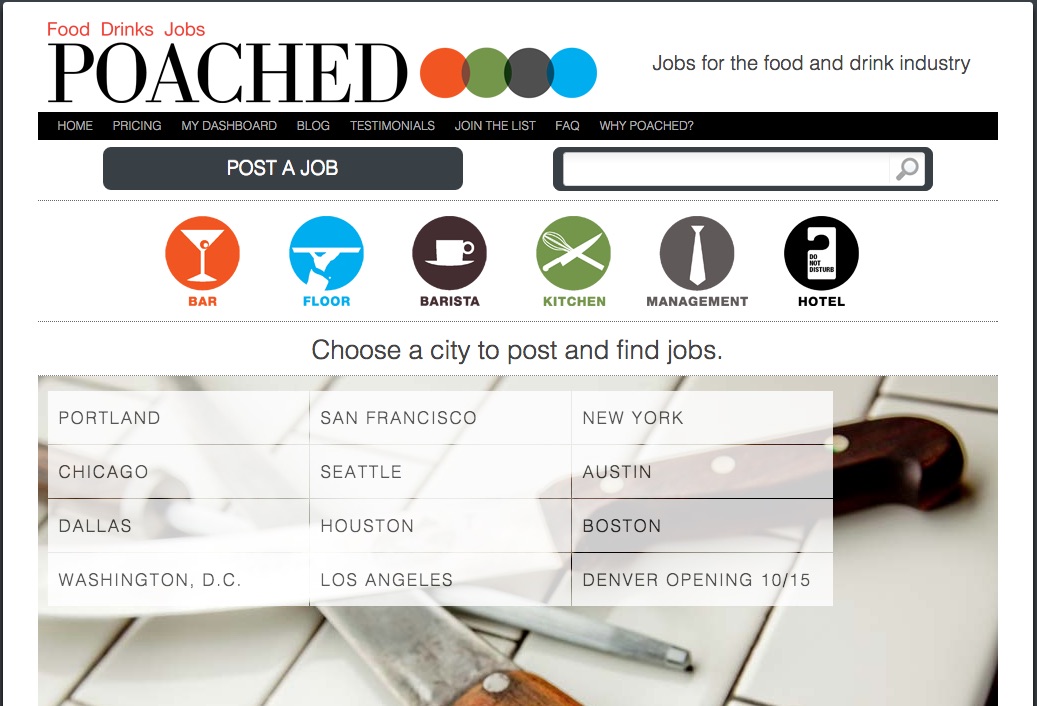Learning Objectives
- Give some examples of corporate strategies
Poached Jobs
Market development: use existing products to capture new markets
Together, the hospitality industry, restaurants, and hotels account for 14 million jobs across the U.S., but the industry has a crushing 65 percent job-turnover rate. That means that, in a single year, there will be 8 million job openings in the industry. Most restaurant and hotel managers post jobs on Craigslist.com and have a terrible time sorting through hundreds of applicants who lack necessary qualifications or experience.
Poached Jobs is a young company that addresses this problem by providing an industry-based dedicated jobs platform that allows managers to find qualified applicants and manage the hiring process.
The company has chosen a market development strategy that’s based on geography. When Poached enters a new market, it wants to own that market and become the hiring solution for every restaurant and hotel in the region. The company used its initial markets, Seattle and Portland, to refine a market-entry strategy for its product and then took on larger markets such as San Francisco and Chicago. With each subsequent market the company incorporated new approaches that sped the adoption process. In late 2014, Poached entered the enormous New York City market. Most of 2015 was spent focusing on growth and success in that single market in order to build credibility that would enable it to move into other geographic regions.
The market development strategy allows a small company like Poached to stage its growth, perfect its existing product, and capture new markets one at a time.

